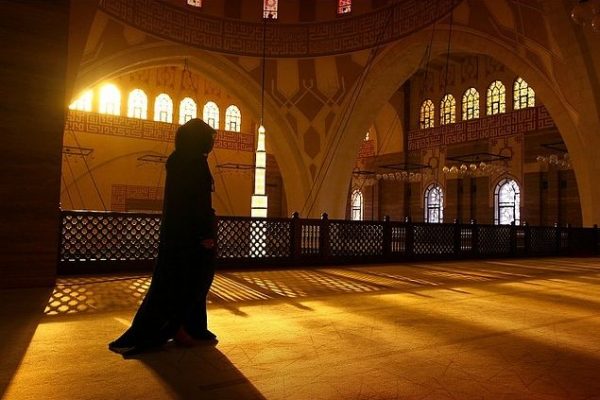Tajikistan’s history of restricting Islamic practices is a complex and multifaceted issue – so what’s going on right now?
Tajikistan’s history of restricting Islamic practices is a complex and multifaceted issue – so what’s going on right now?
Tajikistan, a landlocked country in Central Asia, is known for its rugged mountains and ancient Silk Road cities. However, its post-Soviet history is marked by a complex and often contentious relationship with Islam, the faith practiced by the majority of its population.
Since gaining independence from the Soviet Union in 1991, Tajikistan’s government has implemented various measures to control and sometimes restrict Islamic practices.
This approach has been both a response to security concerns and a reflection of the government’s commitment to secularism.
In this article, we will explore the history of these restrictions, their impact, and the broader context within which they have occurred.
Early Independence and Civil War
Following the dissolution of the Soviet Union, Tajikistan declared independence in 1991. However, the fledgling nation soon found itself engulfed in a brutal civil war from 1992 to 1997.
The conflict was fueled by a mix of political, regional, and ideological differences, with Islamist factions playing a significant role. The war ended with the victory of the government led by Emomali Rahmon, who remains in power to this day.
The civil war left a deep imprint on Tajikistan’s political landscape. The government, wary of the influence of political Islam, began to view it as a threat to national stability.
This perception laid the groundwork for future policies aimed at controlling religious practices and limiting the influence of Islam in the public sphere.
Regulation of Religious Activities in the 2000s
As Tajikistan emerged from the shadow of civil war, the government took steps to regulate religious activities.
In 2005, a new Religion Law was enacted, which required all religious groups to register with the government. This law aimed to prevent the proliferation of unregistered religious organizations, which were seen as potential hotbeds of extremism.
The 2005 Religion Law also imposed restrictions on religious education for minors. This measure was part of a broader effort to ensure that religious teachings did not contradict the secular principles of the state. The government sought to promote a version of Islam that aligned with its vision of national unity and stability.
The Parental Responsibility Law of 2009
In 2009, Tajikistan’s government introduced the Parental Responsibility Law, which included a controversial provision banning minors from attending mosques and other religious services, except for funerals.
This law was justified on the grounds of protecting children from radical influences and ensuring their education adhered to secular values.
Critics argued that the law infringed on religious freedom and parental rights. They contended that it was part of a broader campaign to secularize society and diminish the role of Islam in public life. Despite the controversy, the government remained steadfast in its commitment to enforcing the law.
Increasing Restrictions in the 2010s
The 2010s saw a further intensification of the government’s control over Islamic practices. One of the most visible aspects of this policy was the informal ban on hijabs and beards. While not officially legislated, there were widespread reports of women being pressured to remove their hijabs and men being forced to shave their beards.
These measures were justified by the government as necessary to combat radicalism and promote a secular image of the state.
Surveillance and Control of Religious Leaders
During this period, the government also increased its surveillance of religious leaders. Imams and other religious figures were required to obtain official approval for their sermons, and the Committee on Religious Affairs was granted significant authority to oversee religious activities.
This level of control was intended to ensure that religious teachings did not promote extremism or challenge the government’s authority.
Closure of Mosques
Another significant development in the 2010s was the closure of many unregistered mosques and prayer rooms.
The government argued that these closures were necessary to prevent the spread of radical ideologies. However, critics saw them as part of a broader strategy to limit the influence of Islam and reinforce state control over religious practices.
Restrictions on Pilgrimage
In addition to domestic restrictions, the government placed limitations on the number of citizens allowed to participate in the Hajj pilgrimage to Mecca.
These restrictions were ostensibly based on security concerns and the need to ensure that pilgrims adhered to state-approved guidelines. However, they were also seen as another means of exerting control over religious practices and limiting the influence of external religious networks.
2016 Constitutional Referendum
A significant milestone in Tajikistan’s approach to Islam came in 2016 with a constitutional referendum.
Among other changes, the referendum included provisions to strengthen the state’s control over religious practices. Notably, it included a ban on political parties based on religion, further consolidating the government’s secular stance.
Crackdown on Religious Education
The government has also targeted informal religious education. Authorities have cracked down on unregistered religious schools and required that all religious education adhere to state-approved curricula.
These measures are part of a broader effort to ensure that religious teachings support the government’s vision of a secular and stable society.
Government Justification and Criticism
The Tajik government justifies its restrictive policies on the grounds of national security and the need to combat extremism. Officials argue that the measures are necessary to prevent the rise of radical Islam and ensure the stability of the nation. They also emphasize the importance of maintaining a secular state that is free from religious interference in political affairs.
However, these policies have drawn significant criticism from human rights organizations and religious freedom advocates. Critics argue that the restrictions infringe on fundamental rights to freedom of religion and belief. They contend that the measures are overly broad and often target peaceful religious practices that pose no threat to national security.
The Impact on Society
The government’s restrictive policies have had a profound impact on Tajik society. For many Tajiks, the measures have created an atmosphere of fear and uncertainty regarding religious expression. The informal bans on hijabs and beards, in particular, have been seen as intrusive and discriminatory.
The Role of International Organizations
International organizations, including the United Nations and various human rights groups, have expressed concern about Tajikistan’s restrictions on religious freedom.
Reports and statements from these organizations have called on the government to respect the rights of its citizens to freely practice their religion. However, the Tajik government has often responded by reaffirming its commitment to national security and secularism.
Wrapping up
Tajikistan’s history of restricting Islamic practices is a complex and multifaceted issue. Rooted in the aftermath of a brutal civil war and driven by concerns about extremism, the government’s policies have sought to control and limit the influence of Islam in public life.
While these measures have been justified on the grounds of national security and secularism, they have also drawn significant criticism for infringing on religious freedom.
As Tajikistan continues to navigate this challenging terrain, the balance between security and individual rights will remain a critical and ongoing debate.





